 Exercise appears to protect against some cancers. Yes, something so simple as merely getting the recommended amount of 2 1/2 hours per week of exercise (e.g. brisk walks) really lowers the risk of 7 cancers: colon, breast, endometrial, kidney, myeloma, liver, and non-Hodgkin lymphoma.
Exercise appears to protect against some cancers. Yes, something so simple as merely getting the recommended amount of 2 1/2 hours per week of exercise (e.g. brisk walks) really lowers the risk of 7 cancers: colon, breast, endometrial, kidney, myeloma, liver, and non-Hodgkin lymphoma.
The researchers analyzed 9 studies for a total of 755,459 individuals (median age 62 years, 53% females) who were followed for 10.1 years, and found that 50,620 cancers developed. They specifically looked at 15 cancers and found that exercise lowered the risk of 7 cancers. Some, but not all, were lowered in a dose response manner, that is, the more exercise, the bigger the protective effect (e.g. breast, colon, endometrial cancer). How much the cancer risk was lowered with exercise varied by types of cancer: colon (8%-14% lower risk in men), breast (6%-10% lower risk), endometrial (10%-18% lower risk), kidney (11%-17% lower risk), myeloma (14%-19% lower risk), liver (18%-27% lower risk), and non-Hodgkin lymphoma (11%-18% lower risk in women).
How much exercise was needed for a cancer protective effect? About 2 1/2 to 5 hours per week of moderate-intensity physical activity, such as brisk walking. The study looked at "leisure-time" exercise, which can include exercise, sports or any recreational activity which is typically "moderate to vigorous intensity".
The Physical Activity Guidelines from the US Department of Health and Human Services recommends that adults do at least 150 to 300 minutes of moderate-intensity physical activity a week, or 75 to 150 minutes of vigorous-intensity activity, or an equivalent combination of moderate- and vigorous-intensity activity. Brisk walking is moderate intensity physical activity. Bottom line: get out and move, move, move!
From Medical Xpress: Report links recommended physical activity levels to lower risk of seven cancers ...continue reading "Exercise May Lower The Risk Of Some Cancers"

 Adding fluoride to municipal drinking water has been controversial for years, with much debate over benefits (prevention of tooth decay) vs health concerns. Especially worrisome are recent studies finding that fluoride in drinking water may have negative effects on children's IQ, whether the fluoride exposure occurs during
Adding fluoride to municipal drinking water has been controversial for years, with much debate over benefits (prevention of tooth decay) vs health concerns. Especially worrisome are recent studies finding that fluoride in drinking water may have negative effects on children's IQ, whether the fluoride exposure occurs during  Many, many women experience weight gain after menopause, with many experiencing "belly rolls" for the first time in their life. All women say that it is especially hard to lose weight after menopause, even though there are many health reasons to do so (e.g. postmenopausal weight gain is a cause of breast cancer).
Many, many women experience weight gain after menopause, with many experiencing "belly rolls" for the first time in their life. All women say that it is especially hard to lose weight after menopause, even though there are many health reasons to do so (e.g. postmenopausal weight gain is a cause of breast cancer).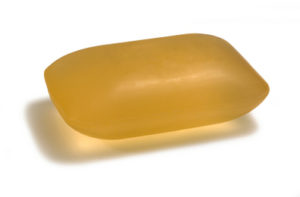 What is the best way for cleaning hands to prevent the spread of flu viruses? Advertisers would have you believe that only their
What is the best way for cleaning hands to prevent the spread of flu viruses? Advertisers would have you believe that only their  Another great option for losing weight and better health may be to only eat within a 10 hour window, and then not eat for 14 hours (thus a nightly 14 hour fast). Many may find this easier than traditional dieting (counting calories and restricting eating). Just eat breakfast later, supper earlier, and no snacks in the evening. (But water is OK.)
Another great option for losing weight and better health may be to only eat within a 10 hour window, and then not eat for 14 hours (thus a nightly 14 hour fast). Many may find this easier than traditional dieting (counting calories and restricting eating). Just eat breakfast later, supper earlier, and no snacks in the evening. (But water is OK.) Once again a study finds an association between a Western diet (lots of processed meat, red meat, fried food, desserts, low fiber, high in refined grains, sugar sweetened beverages, and high-fat dairy) and a poor health outcome - this time a significantly higher incidence of late-stage age-related macular degeneration (AMD).
Once again a study finds an association between a Western diet (lots of processed meat, red meat, fried food, desserts, low fiber, high in refined grains, sugar sweetened beverages, and high-fat dairy) and a poor health outcome - this time a significantly higher incidence of late-stage age-related macular degeneration (AMD). Uh-oh, these research findings are not a surprise. A
Uh-oh, these research findings are not a surprise. A 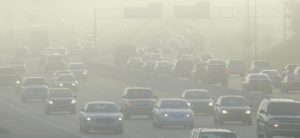 A new study has nicely illustrated how extreme air pollution gets quickly into a person and has negative health effects, but improvement occurs when the exposure to the air pollution ends.
A new study has nicely illustrated how extreme air pollution gets quickly into a person and has negative health effects, but improvement occurs when the exposure to the air pollution ends.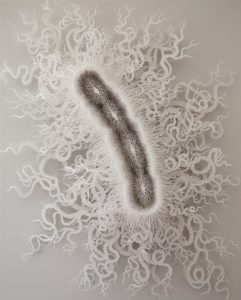 Back in 2015 I posted about Rogan Brown's amazing
Back in 2015 I posted about Rogan Brown's amazing 
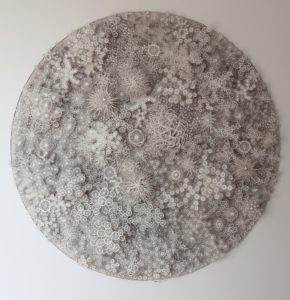
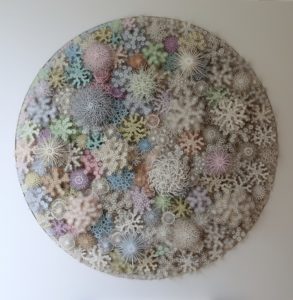
 Magic
Magic